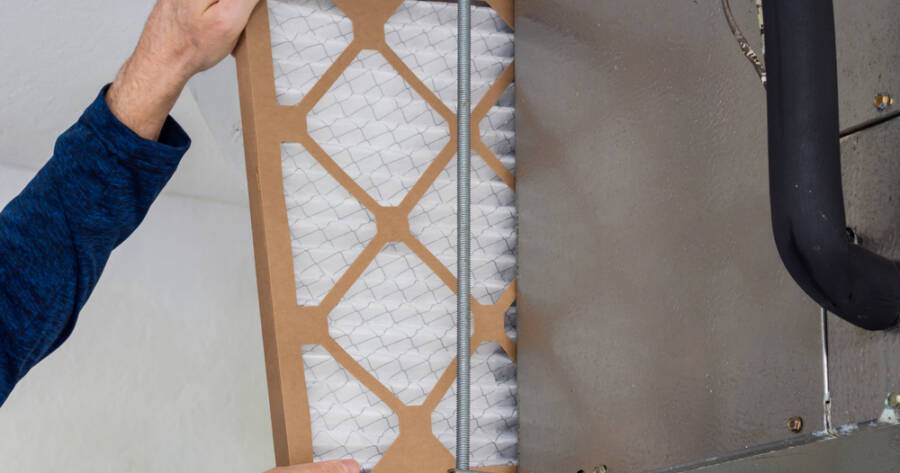Winter often brings higher energy costs as we work to keep our homes warm and comfortable. But staying cozy doesn’t have to mean draining your wallet. With a few practical adjustments, you can make your home more energy-efficient while reducing monthly bills. From insulation upgrades to smarter heating habits, small changes can add up to big savings. Preparing early ensures you stay warm without unnecessary strain on your budget.
Seal Drafts and Leaks
One of the most effective ways to cut heating costs is to stop warm air from escaping in the first place. Drafts around windows, doors, and vents may seem small, but they can significantly increase energy usage. By applying weatherstripping to doors, caulking gaps around window frames, and placing draft stoppers at the bottom of exterior doors, you can prevent cold air from seeping in and warm air from slipping out. Simple measures like these can reduce heating bills by as much as 10 percent.
Add or Upgrade Insulation
Insulation plays a major role in keeping your home warm without overworking your heating system. Heat naturally rises, which makes the attic a prime location for energy loss. Adding insulation here can dramatically improve efficiency. Walls and crawl spaces are also worth addressing, especially in older homes where insulation may be minimal. Even windows can benefit from the extra layer of protection provided by insulated curtains. Though insulation improvements require some investment, the savings often repay you within a few seasons and continue for years.
Adjust Your Thermostat
Smart thermostat management is another simple yet powerful way to lower utility bills. Keeping your home at about 68 degrees Fahrenheit when you are awake and at home is considered energy-efficient, while lowering the temperature by seven to ten degrees at night or when you’re away can provide even greater savings. A programmable or smart thermostat makes this effortless by automatically adjusting temperatures according to your schedule. Over time, even minor adjustments can make a noticeable difference in your heating costs.
Service Your Heating System
A heating system that hasn’t been maintained will work harder than necessary, consuming more energy and putting extra strain on its components. Scheduling a professional tune-up before winter begins ensures your system is running efficiently. Filters should also be replaced or cleaned every one to three months to keep airflow steady and reduce stress on the system. Checking vents and radiators to make sure they aren’t blocked by furniture helps distribute heat evenly throughout the home. Preventive care extends the life of your heating system and improves overall performance.
Harness Natural Sunlight
Even in winter, the sun is a valuable ally. Opening curtains on south-facing windows during the day allows natural warmth to filter in, reducing reliance on artificial heating. Closing those curtains at night helps trap the heat inside, acting as a simple form of insulation. Trimming back branches or shrubs that block sunlight ensures you take full advantage of this free source of energy. While it may not heat your entire home, it certainly contributes to a more comfortable indoor environment.
Use Energy-Efficient Appliances and Lighting
As daylight hours grow shorter, lighting and appliance use naturally increase. Switching to LED bulbs is one of the easiest upgrades you can make, since they consume up to 80 percent less energy than traditional bulbs and last far longer. Unplugging appliances when not in use or connecting them to smart power strips helps eliminate phantom energy drain. If you’re replacing old appliances, choosing ENERGY STAR®-rated models ensures maximum efficiency and savings throughout the year.
Reduce Water Heating Costs
Heating water is often overlooked as an energy expense, yet it can account for up to one-fifth of a household’s utility bill. Lowering your water heater’s temperature to 120 degrees Fahrenheit reduces energy waste without affecting comfort. Wrapping older water heaters with an insulating blanket improves efficiency further. Installing low-flow showerheads and faucets cuts hot water consumption, while simple habits like taking shorter showers and washing clothes in cold water also help reduce costs.
Layer Up and Try Zone Heating
Not all solutions require technical fixes—sometimes it’s about adopting new habits. Dressing in layers, wearing warm socks, or keeping blankets handy allows you to stay comfortable at slightly lower thermostat settings. Using portable space heaters in the rooms you use most frequently lets you practice zone heating, which keeps those spaces warm without wasting energy in unused areas. Lifestyle adjustments like these complement other efficiency efforts and keep utility bills under control.
Prevent Heat Loss from Fireplaces
Fireplaces may create a cozy atmosphere, but they can also be a major source of heat loss if not managed properly. Keeping the damper closed when the fireplace is not in use prevents warm air from escaping through the chimney. Installing glass doors helps reduce heat loss further, while a chimney balloon or draft stopper can block unused fireplaces altogether. These small precautions ensure your heating system isn’t working harder than necessary to compensate.
Consider an Energy Audit
If you want a clear picture of where your home is losing energy, an audit is a worthwhile step. Professional energy audits often include blower door tests and thermal imaging to pinpoint leaks and inefficiencies. Many utility companies even offer these services at little or no cost. The insights you gain can help you prioritize improvements, whether that means upgrading insulation, sealing ducts, or replacing outdated appliances.
Time To Get Cozy!
Saving on winter utility bills doesn’t require dramatic sacrifices. Sealing leaks, adding insulation, adjusting your thermostat, and adopting smarter daily habits all work together to improve efficiency and reduce costs. Each change may seem small on its own, but collectively they make a substantial difference. Preparing your home now not only lowers expenses during the coldest months but also supports a more sustainable lifestyle, creating benefits that last well beyond winter.

